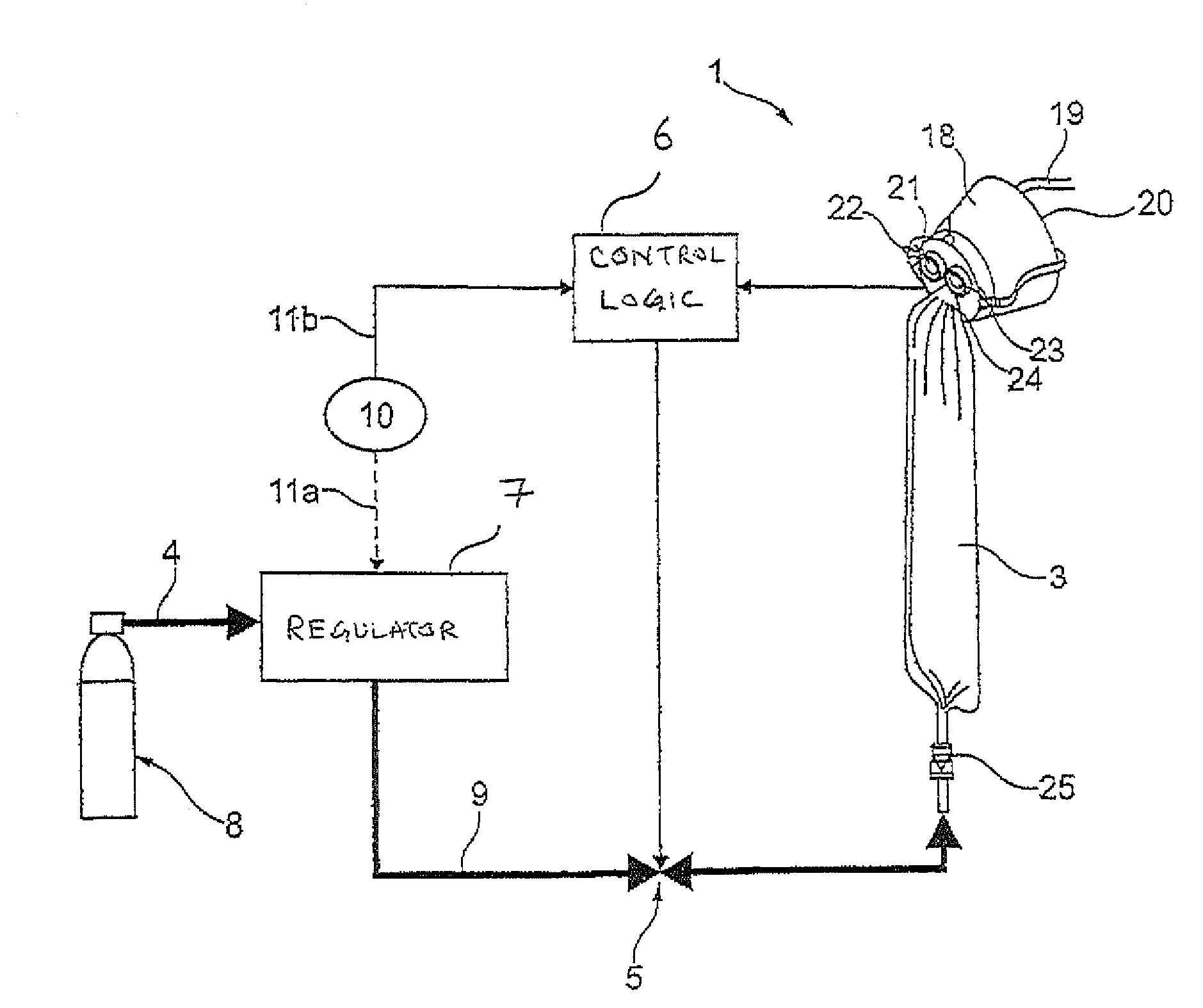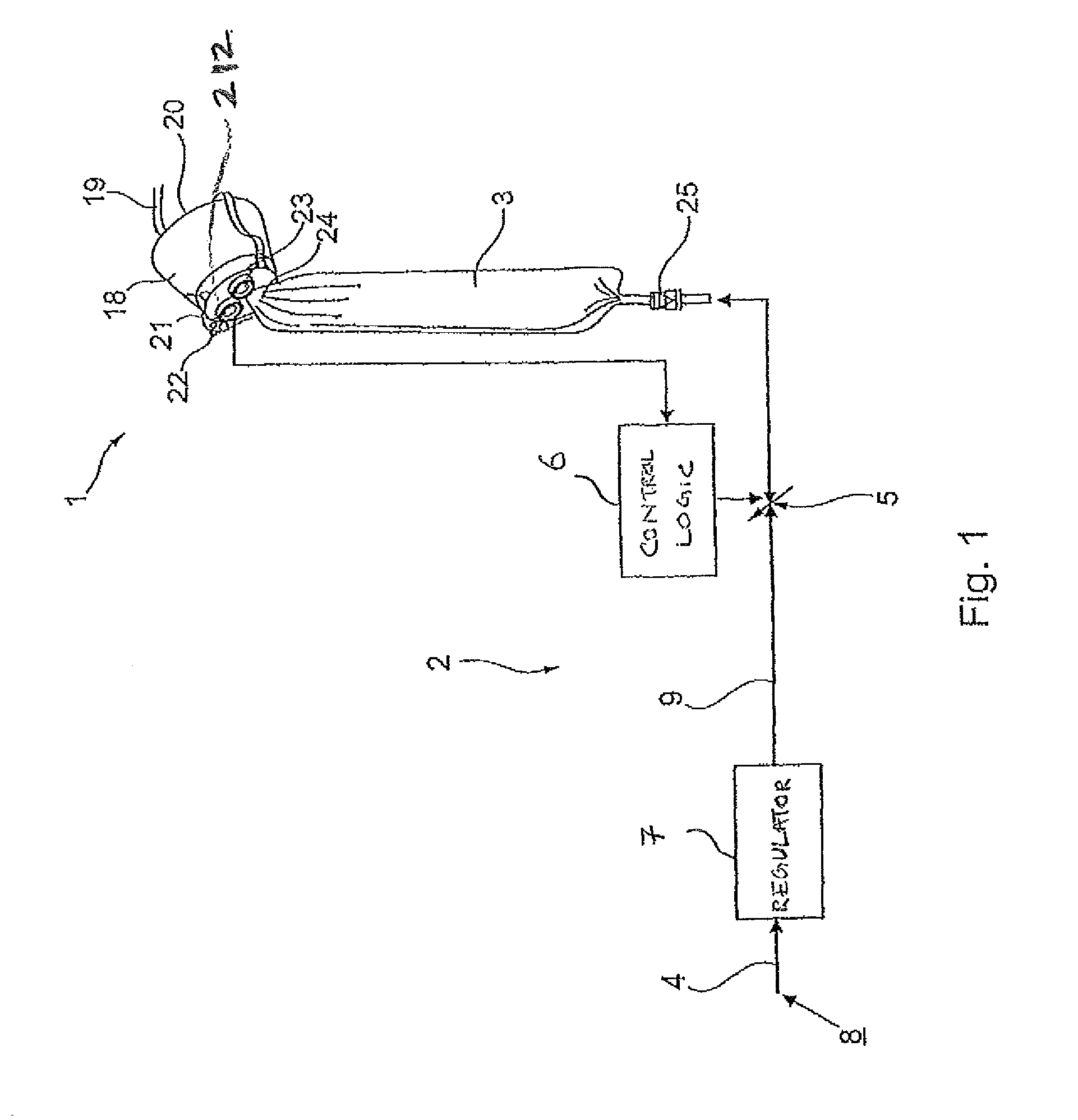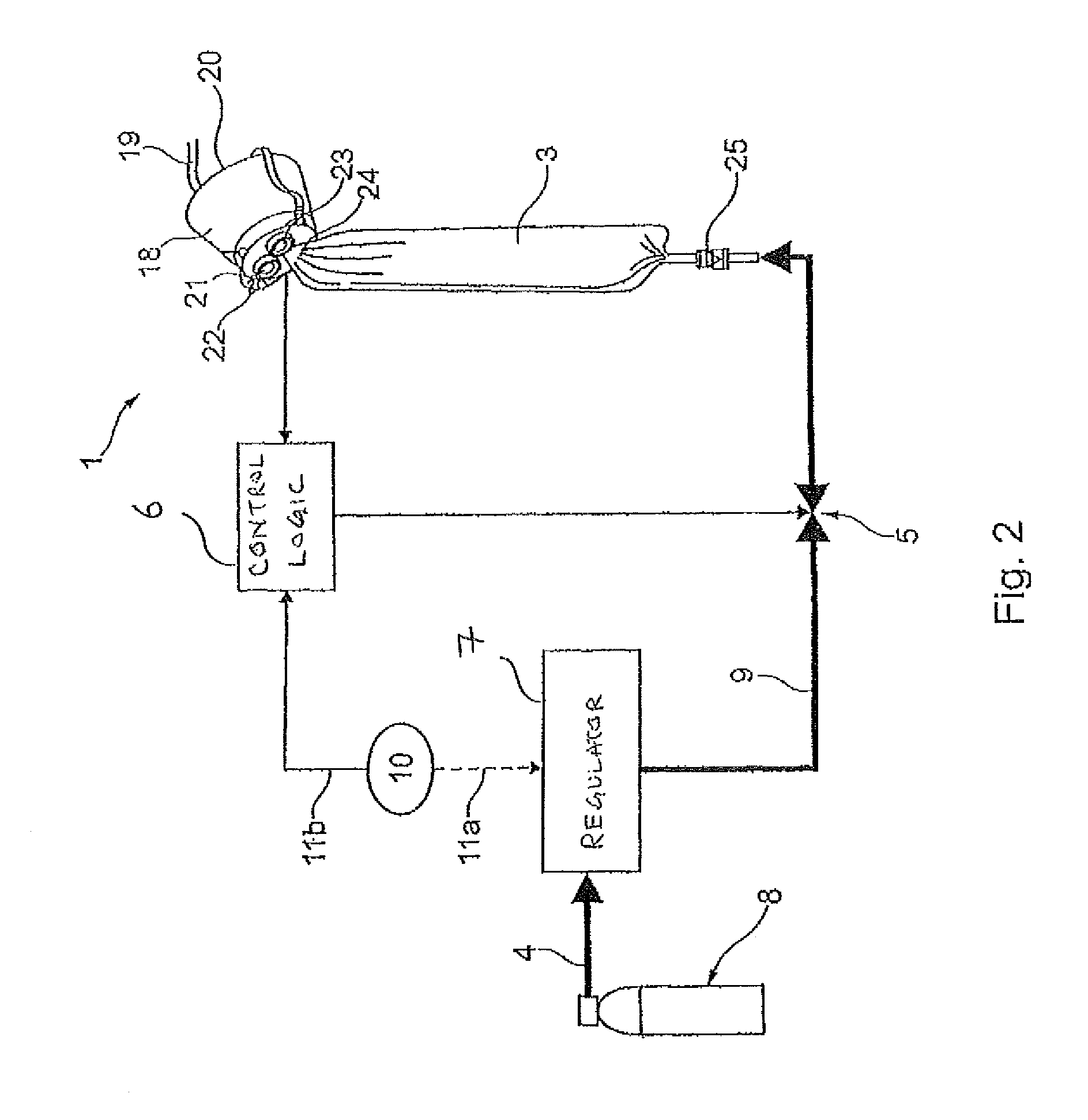Oxygen supply system for an aircraft
an oxygen supply system and aircraft technology, applied in the field of aircraft oxygen supply systems, can solve the problems of low technical complexity of the system, lack of controllability, and loss of oxygen 30-70% in comparison with an optimized supply, and achieve the effect of reducing the oxygen flow and eliminating the control of the admission pressure of the mask
- Summary
- Abstract
- Description
- Claims
- Application Information
AI Technical Summary
Benefits of technology
Problems solved by technology
Method used
Image
Examples
Embodiment Construction
[0051]FIG. 1 to FIG. 4 show exemplary embodiments of a demand-oriented oxygen mask for passengers.
[0052]FIG. 1 shows an example of a TSO-C64a oxygen mask 1 which is outfitted with an oxygen distribution system 2 that provides an on-demand flow to a reservoir bag 3. The mask 1 comprises a cup-like semi-mask 18, which may cover the mouth and the nose of a passenger. The mask 1 may be fixed at the head of the passenger with the help of an elastic strap 19. This elastic strap 19 may ensure a sufficient contact pressure of a sealing lip 20 of the mask 1 to the face of the passenger. The mask 1 further comprises an exhalation valve 21, a sensor 22, an ambient air valve 23 and a reservoir bag valve 24. The mask 1 further comprises the reservoir bag 3. At the reservoir bag 3 there is a flow indicator 25 installed in order to indicate a flow from a control valve 5 into the reservoir bag 3, wherein the control valve is installed upstream in relation to the reservoir bag 3. From the reservoir ...
PUM
 Login to View More
Login to View More Abstract
Description
Claims
Application Information
 Login to View More
Login to View More - R&D
- Intellectual Property
- Life Sciences
- Materials
- Tech Scout
- Unparalleled Data Quality
- Higher Quality Content
- 60% Fewer Hallucinations
Browse by: Latest US Patents, China's latest patents, Technical Efficacy Thesaurus, Application Domain, Technology Topic, Popular Technical Reports.
© 2025 PatSnap. All rights reserved.Legal|Privacy policy|Modern Slavery Act Transparency Statement|Sitemap|About US| Contact US: help@patsnap.com



